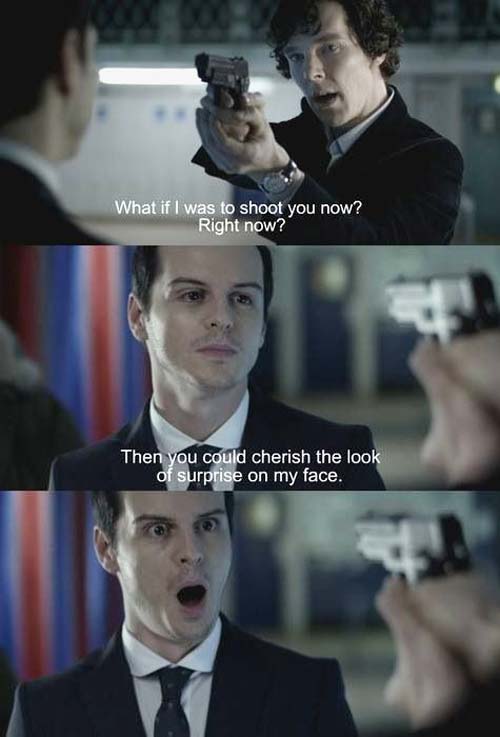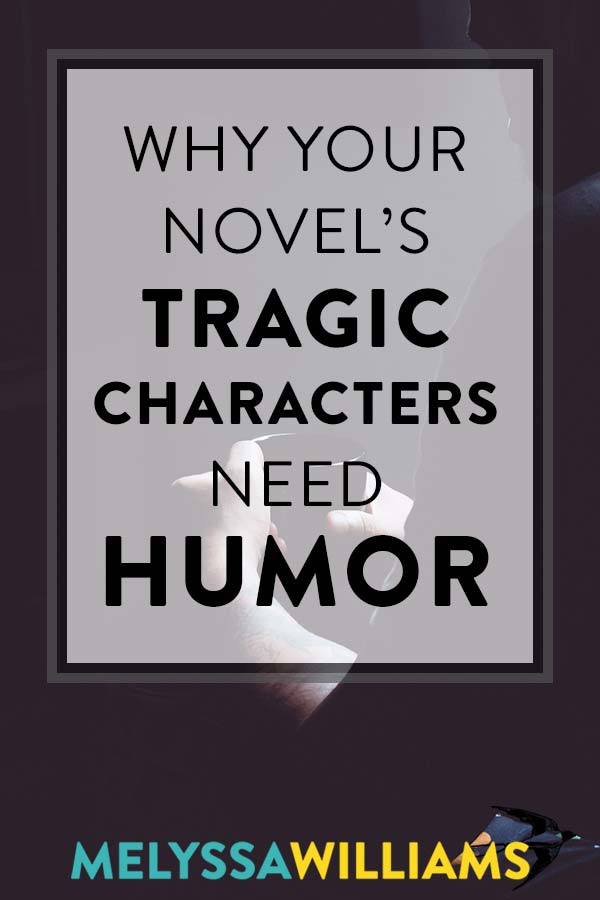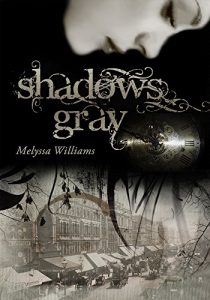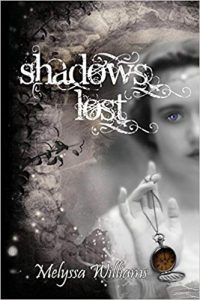The best super-villains, the greatest of all the sorrowful sidekicks, the best friend, the scorned lover, they all have something. It’s more than just their sad story, their scarred face, their evil intents, their bent for revenge or love or whathaveyou.
What makes a character believable … relatable … memorable?
Imagination was given to man to compensate him for what he is not; a sense of humor to console him for what he is.
~ Francis Bacon
What makes a character immortal for me? Humor. No matter how evil, no matter how tragic, how ridiculous, how minor, if a character has a sense of humor, I will remember him.
Please note that this post contains affiliate links, which means that if you purchase something you see on our site we may receive a commission at no cost to you. Read our full disclosure here.
HUMOR IN TRAGIC CHARACTERS
Phoebus de Chateaupers likewise came to a tragic end … he married.
~ Victor Hugo, The Hunchback of Notre-Dame
A sense of humor to console him for what he is … Something to soften the blow, so to speak. And thus causing us – the observer, the audience, the reader – to fall in love? Or at the very least, to take note, to remember.
And isn’t that what we want? To live on ad infinitum? Isn’t that what we all want?
It’s what our novel’s characters want too. They’re clamoring for our attention, and they want to make us laugh.
Okay, maybe a few pages later they want to stab us in the back or break out hearts, but first:
Laughter.
Coping with Tragedy
Tragedy befalls us all: young, old, small, large, minor, major, celebrity, nobody, mother, father, sister, brother, wife, husband, neglected, celebrated, skinny, chubby, local, foreigner, weak, strong, hero, villain.
Tragedy is what binds us all together in a bittersweet soup of heartbreak and despair and humanity. It’s what sews us together in our quilt of slipshod, willy-nilly heartbreak. That, and the humor we use to cope. To rise out of it, to capture it, to surrender to it, to … live it.
Comedy is simply a funny way of being serious.
~ Peter Ustinov
The greatest villains of all time could laugh at themselves. The pathetic clown who dies in Act II could bring tears of mirth to the audience. The BFF who is one tater tot short of a Mexi meal can make a reader howl with laughter.
Writing Memorable Characters
In short? Those characters – no matter how small and insignificant – will steal the show.
Robin Hood steals money from MY pocket, forcing me to hurt the public, and they LOVE him for it? That’s it then. Cancel the kitchen scraps for lepers and orphans, no more merciful beheadings, and call off Christmas.
~ The Sherrif of Nottingham, Robin Hood: Prince of Thieves
Don’t underestimate the importance of humor in your very own (written) tragedy. Without it, your beautiful death scene becomes hollow, your climax is … meh, and your memorable storyline becomes something that your reader will forget as soon as she returns the library book. No one wants a death like that.
If you remember me, then I don’t care if everyone else forgets.
~ Haruki Murakami
I don’t care if she was a blow-up doll, the funeral in Lars and the Real Girl makes me sob crocodile tears every time.
Every.
Time.
Why? Because the whole situation was ridiculous. It made you laugh.
And then it made you cry.
Dammit, Lars.
First we’re cajoled, entreated with so much candy, into a paneled van; unsuspecting, innocent, simply looking for a good time – or a purple Jolly Rancher, which as we all know, are one and the same thing. We learn to love the little outcast, the bestie with cancer, the silly but noble sidekick. We love them because they offer hope in a tragic situation, laughter in calamity, a chance to catch our breath in the midst of darkness and despair.
And more often than not, that’s when the author drops the hammer on our innocence, naiveté, and outlandish optimism.
“Optimist” is a word which here refers to a person, such as Phil, who thinks hopeful and pleasant thoughts about nearly everything. For instance, if an optimist had his left arm chewed off by an alligator, he might say, in a pleasant and hopeful voice, “Well, this isn’t too bad. I don’t have my left arm anymore, but at least nobody will ever ask me whether I am right-handed or left-handed.” But most of us would say something more along the lines of “Aaaaah! My arm! My arm!”
~ Lemony Snicket, The Miserable Mill
Only the good die young, amiright?
For characters, no matter now big and important or small and insignificant, if you want to make them shine in the mind’s eye of your reader …
Give them a sense of humor.
Take Jim Moriarty in the BBC Sherlock series, for example – in case you’re still unconvinced. Scared the tuna salad out of me, yet constantly made me snort my evening glass of cardbordeaux.

Very few people in life exit stage left without making someone laugh. Let your novel’s characters live forever by giving them humor in tragic circumstances.
Funny/Tragic Character Examples
Still need convincing? Here are some of the very best tragic characters/villains who made us laugh in spite of ourselves:
- Cruella de Vil, 101 Dalmations, by Dodie Smith. Sure, you think it’s a kid’s book until you really stop to think about it: the woman is skinning doggies for her coats, you guys. And she does it with light-hearted humor.
- Rex Walls, The Glass Castle, by Jeanette Walls. A real-life tragic character (or villain, depending on your take), Rex was an alcoholic drifter, but golly, he could laugh at himself and make us laugh too.
- Dobby, the Malfoy’s house-elf, in the Harry Potter series, by J.K. Rowling. Can you be more tragic than a scullery slave who can only be freed by a sock? I dare you not to get a little misty eyed even as you chuckle.
- Count Olaf, A Series of Unfortunate Events, by Lemony Snicket. Sure, he’s a totally evil kidnapper bent on murder, but he does it with marvelous quips.
- Vizzini, The Princess Bride, by William Goldman. This nasty little man actually dies laughing at his own joke. Goals.
- Prince Humperdinck, The Princess Bride, by William Goldman. Tyrone, you know how much I love watching you work. But I’ve got my country’s 500th anniversary to plan, my wedding to arrange, my wife to murder, and Guilder to frame for it. I’m swamped! Nuff said.
- Long John Silver, Treasure Island, by Robert Lewis Stevenson. The ultimate pirate, Long John put up with our snotty-nosed Jim with surprising patience and a sense of humor. You need those things when you’re adrift at sea or stuck on a deserted island with a preteen.
- The Wicked Witch of the West, The Wizard of Oz, by L. Frank Baum, and also:
- Elphaba, Wicked: The Life and Times of the Wicked Witch of the West, by Gregory Maguire (the Broadway musical, Wicked, was based off the latter). Considering she’s green, hated by all, and is really only asking for ONE, CRUMMY, USED PAIR OF SHOES, she still manages to come up with some snappy comebacks and make us cheer her on in spite of ourselves.
- Bertha Rochester, Jane Eyre, by Charlotte Bronte. Okay, she’s not exactly hilarious, but you try being locked in an attic for all of eternity while your husband gallivants with the help. And she seems to find herself funny … as she cackles throughout the castle lighting s$*t on fire. You could say she gets the last laugh.
- Ove, A Man Called Ove, by Fredrik Backman. Ove is the epitome of tragic characters throughout most of the novel, but he does it the best when he’s (albeit unintentionally) making us laugh.
- Lady Macbeth, Macbeth, by William Shakespeare. Sure, she’s bad to the bone, struggles with some addiction to power issues, and is kind of a bee-atch to her sniveling spouse, but she has great snark, so we forgive her.
- Anne, Anne of Green Gables, by Lucy Maud Montgomery. Anne is a bedraggled orphan so her middle name is basically Tragedy, but even when she is in the depths of despair, she makes us laugh and wish she could be our very own BFF (Bosom Friends Forevah).
- Bill Sikes, Oliver Twist, by Charles Dickens. Bill is nasty,mean, and an abuser … on his good days. On his bad days, he’s a real piece of work, but he moves through the streets of London with some memorable one-liners and sarcasm.
PIN IT





